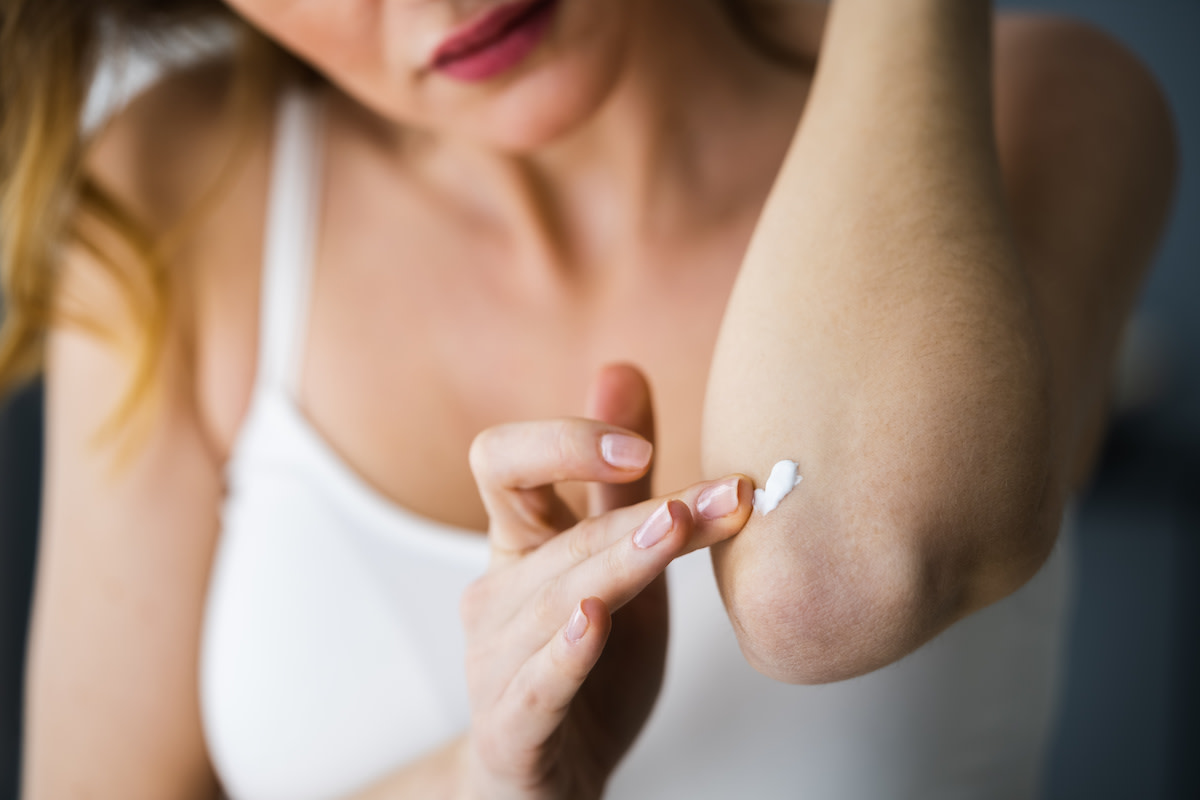Home & Lifestyle
Dry Skin Care Tips: How to Treat Dry Skin
Written by MasterClass
Last updated: Mar 9, 2022 • 3 min read
Skin lacking the proper moisture can become dry and itchy. Learn more about what causes dry skin and how to treat a variety of dry skin conditions.
Learn From the Best
What Is Dry Skin?
Dry skin has inadequate moisture and can become rough and itchy as a result. Sometimes, a simple lotion is not enough to treat the symptoms of dry skin. Learn more about what causes dry skin and how to treat a variety of dry skin conditions.
10 Common Causes of Dry Skin
There are several common reasons skin becomes dry.
- 1. Allergies: Contact dermatitis is usually triggered in people with sensitive skin when they come in contact with a product containing harsh chemicals. This can include deodorants, perfumes, and soaps.
- 2. Dry air: In cold climates, winter months often bring winter itch. When cold weather occurs, the air becomes drier. Dry air leads to dry skin, which can become itchy and sensitive.
- 3. Bathing habits: Taking hot showers several times a day can increase the likelihood of dry skin. Hot water can strip away the body's natural oils.
- 4. Harsh soaps and detergents: Washing your hands, hair, and body with harsh soaps can cause dry, flaky skin. Similarly, laundry detergents are designed to strip dirt and oil from clothing and bedding and can have a similar effect on your skin.
- 5. Deodorant: Deodorants are designed to keep armpits from getting sweaty, but they can sometimes take the dryness a little too far. Pair its drying capabilities with harsh chemicals and fragrances and you've got a recipe for dry, itchy skin.
- 6. Skin conditions: Psoriasis and atopic dermatitis (eczema) are common conditions that result in dry, itchy, flaky, and cracked skin.
- 7. Medications: Some medications may cause dry skin, including diuretics and statins. Topical acne treatments containing retinoids can also dry out the skin.
- 8. Medical conditions: Dry skin is a side effect of a number of health conditions, including diabetes, hypothyroidism, and kidney disease.
- 9. Skin infections: Athlete's foot and ringworm are common fungal infections that cause dry skin.
- 10. Malnutrition: Much of the skin's hydration comes from a healthy diet full of fatty acids and antioxidants. A diet lacking in these nutrients can exacerbate dry skin.
How to Treat Dry Skin
Consider these treatments for dry skin.
- 1. Use a humidifier. Low-humidity environments often lead to dry skin. Use a portable humidifier, or have one installed in your home's central heating unit.
- 2. Hydrate skin with lotion, ointments, or creams. From moisturizing creams to petrolatum (petroleum jelly), there are many over-the-counter skincare products that can be used to treat dry, flaking skin. Look for lotions containing lipids, ceramides, glycerin, or hyaluronic acid to help reinforce the skin's protective barrier.
- 3. Drink plenty of water. Your organs—including your skin—absorb moisture when you drink water. Drinking plenty of water throughout the day and avoiding excessive consumption of diuretics like coffee and alcohol can help reduce skin dryness.
- 4. Wash your face with a gentle cleanser. Facial cleansers formulated for sensitive skin are the ideal product for face washing.
- 5. Wash your hands with gentle soaps. Hand washing plays an important role in your overall health and wellness; however, excessive hand washing (especially with hot water) can cause dry, cracked skin. Instead, wash your hands throughout the day with lukewarm water and gentle, fragrance-free hand soap.
- 6. Wear gloves in cold climates. You can protect your hands from cold, dry air by wearing gloves when winter weather hits.
- 7. Schedule screenings with a dermatologist. Regular screenings by a dermatologist are recommended for those with skin conditions such as eczema and psoriasis. These conditions are characterized by rashes that can become itchy. Scratching can lead to open wounds that can easily become infected and cause the rash to spread. A dermatology professional can provide a diagnosis and topical solutions that can help keep skin conditions in check. Dermatologists can also keep an eye on your skin for signs of skin cancer.
Learn More
Get the MasterClass Annual Membership for exclusive access to video lessons taught by the world’s best, including Bobbi Brown, RuPaul, Tan France, and more.
